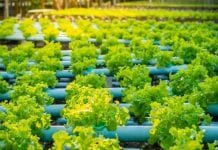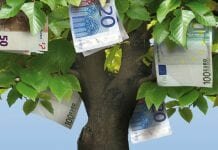
The EU is on the front line of food waste reduction, ensuring the transition to sustainable food policy systems.
36 leading campaign groups, farming organisations and think tanks, including Zero Waste Europe, have come together to call on the new European Commission President to establish an integrated, sustainable EU food policy during her premiership. In an open letter to President Ursula von der Leyen, the organisations – representing the sectors of farming, fisheries, environment, animal welfare, health, consumers, development, social justice, climate and forestry – also called for a European Commission Vice President to be made responsible for ensuring the transition to sustainable food policy systems.
Citing the existential threats posed by current trends, the letter states: ‘Reforming our food systems is… an opportunity for the EU and its Member States to address the concerns of many citizens, and is the key to meeting the UN Sustainable Development Goals (SDGs), the Paris Agreement on climate change, and many other commitments to protect people and the planet’.
Creation of an integrated sustainable food policy
The creation of an integrated food policy, under the stewardship of the European Commission Vice President, is essential to coordinate the efforts of the many different departments impacting our food systems, including DG AGRI, CLIMA, COMP, EMPL, ENERGY, ENVI, GROW, MARE, SANTE, TRADE and TRANSPORT.
Underlying the results of the recent EU parliamentary elections, the signatories highlighted the growing public will for an integrated, holistic approach to sustainable food policy. Echoing the key findings of IPES-Food’s February 2019 report, ‘Towards a Common Food Policy for the EU’, the letter calls for a shift away from sector-specific policies towards a broader focus on food, helping to ensure a wider range of stakeholders can be involved in the design and monitoring of such policies.
Zero Waste Europe legislation
Zero Waste Europe recently issued specific guidelines and recommendations aimed at helping policymakers to adopt an ambitious legislation and promoting a zero waste society.
Prioritising reduction of food waste means moving towards better, fairer, and more sustainable production and consumption methods. In that sense, measures at the European level should:
- Adopt a comprehensive vision of food waste as an issue inherently present within the food system as currently designed;
- Have impacts all along the food chain, not only focusing on consumption but also on production, processing and retail; and
- Be defined by a specific and ambitious food waste hierarchy, as food waste requires specific measures that cannot be solely addressed through the general waste hierarchy.
A shift towards integrated food policies has also been advocated by the European Economic and Social Committee, the Committee of the Regions, the Joint Research Centre, the Commission’s Scientific Advice Mechanism (SAM), the European Environment Agency, and the Standing Committee on Agricultural Research, showcasing the broad support that this approach has throughout the entire European Union.
EU at the forefront of global action: aiming to halve food waste by 2030
At the 6th EU Platform on Food Losses and Food Waste, Vice-President for Jobs, Growth, Investment and Competitiveness, Jyrki Katainen, in charge of Health and Food Safety said: “Four years have passed since we launched the EU’s groundbreaking, unique of this type globally, Circular Economy Action Plan. In that time, we have delivered or are implementing each of the plan’s 54 actions. Together, these efforts are protecting the environment, boosting Europe’s competitiveness, modernising its economy and industry, and generating sustainable growth.”
Circular Economy Action Plan
Commissioner Katainen continued: “In March 2019, the Commission published a report on the implementation of the Circular Economy Action Plan. It shows how the plan has accelerated the transition towards a circular economy. What does this mean in practice? Well, job creation, for a start.
“In 2016, sectors relevant to the circular economy employed more than four million workers – a 6% increase compared to 2012. Circularity has opened up new business opportunities. Circular activities such as repair, reuse or recycling generated almost €147bn in value added. They also accounted for around €17.5bn worth of investments.
“Overarching all of this is the drive for a more sustainable future – in which the food sector plays a fundamental role. In the EU, 61% of biomass is mainly used for food and animal feed and the whole food chain sector employs one fifth of the workforce. But food is far more than just a trading commodity. It is loaded with historical, cultural and social values. And of course, it has a direct impact on our environment. While citizens expect their food to be safe and affordable, they are increasingly concerned about food quality, its origins and impact on their health and the environment. The sustainable management of land, soil, water, and the conservation and sustainable use of biodiversity, are essential to making food systems circular.”
Moving forward
In order to advance the Circular Economy agenda, the Commission will engage in direct interaction with stakeholders from across entire value chains. This approach has catalysed intersectoral co-operation between public and private actors, while also enabling replication and scaling up of initiatives within and across Member States. However, over half of food waste generated in the EU comes from people’s personal homes and so the transition to greater circularity and more sustainable food practices needs the active engagement of citizens.
Commissioner Katainen added: “The food and drinks sector has not yet received the same overwhelming attention level which was given to our actions related to plastics. But it should come. There are plenty opportunities to redesign a food system that minimises losses and promotes circularity. This will maximise value for consumers, producers and society as a whole. A systemic approach also means achieving full recyclability of plastic food packaging by 2030 in line with the Commission’s plastics strategy.
“Turning bio-waste, residues and discards into valuable resources, as part of the bioeconomy, offers further business opportunities. Food loss and waste is nothing else but a symptom of a dysfunctional food system and tackling its root causes requires rethinking how we produce, market, distribute and consume food. The forthcoming ‘recommendations for action’ in food waste prevention, to be elaborated and adopted by this Platform in December 2019, can make an important contribution to this effort.
“We need to enable mechanisms at international, EU, national and local level to help stakeholders make a successful transition to more sustainable food systems. Of course, policies aimed at strengthening sustainable production and consumption have to safeguard food safety, animal and human health.
“A ‘business as usual’ approach is not enough to tackle the many interrelated and competing challenges faced by our food systems.”


















